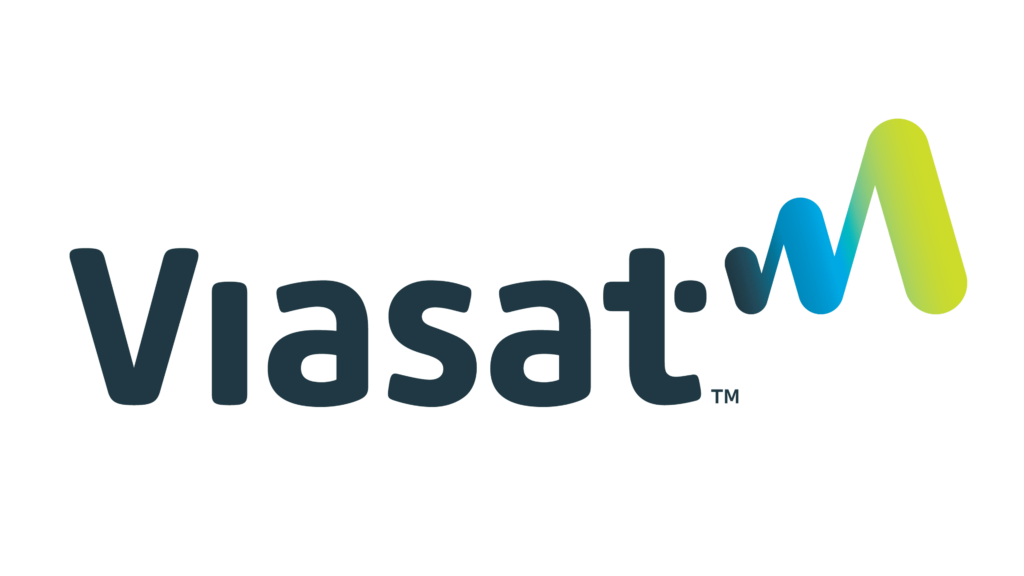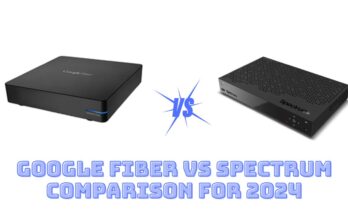In today’s connected world, having a reliable internet service provider (ISP) is crucial. With so many options available, it can be overwhelming to choose the right one. In this article, we will dive deep into a comparison between two leading satellite internet providers, ViaSat and HughesNet Internet. Our detailed analysis will cover various aspects, including speed, plans, data caps, pricing, and customer support, to help you make an informed decision.
Overview of Viasat vs HughesNet Internet
Viasat vs HughesNet Internet are two of the most popular satellite internet providers in the United States. Both companies offer high-speed internet services to rural and remote areas that may not have access to traditional broadband options like cable or fiber.
Viasat, formerly known as Exede, operates through the ViaSat-1, ViaSat-2, and WildBlue-1 satellites. The company is known for its high-speed internet plans, with speeds up to 100 Mbps. HughesNet, on the other hand, operates through the EchoStar XVII and EchoStar XIX satellites. It provides a consistent speed of 25 Mbps across all its plans.

12 Mbps and 40GB starting at:
$64.99/mo.
- Provider: Viasat.
- Download speeds up to 12 Mbps

25 Mbps and 40GB starting at:
$64.99/mo.
- Provider: HughesNet.
- Download speeds up to 25 Mbps
Speeds: Viasat vs HughesNet Internet
When it comes to internet speed, Viasat has a clear advantage over HughesNet. Viasat offers a range of plans with varying speeds, from 12 Mbps to 100 Mbps, while HughesNet offers a single speed of 25 Mbps for all its plans.
| Provider | Speed Range |
|---|---|
| Viasat | 12-100 Mbps |
| HughesNet | 25 Mbps |
It’s essential to note that these speeds are the maximum advertised speeds and may not be consistent during peak hours or under certain weather conditions. However, Viasat’s higher speed options make it a better choice for users who require faster internet for tasks like streaming, gaming, or video conferencing.
Plans: Comparing Options Viasat vs HughesNet Internet
Both Viasat and HughesNet offer a variety of plans with different data allowances to cater to various user needs. In this section, we will compare the plans offered by both providers to help you understand their offerings better.
Viasat offers four main plans, each with different speed and data allowance options:
| Plan Name | Speed | Data Allowance |
|---|---|---|
| Unlimited Bronze | 12 Mbps | 40 GB |
| Unlimited Silver | 25 Mbps | 60 GB |
| Unlimited Gold | 50 Mbps | 100 GB |
| Unlimited Platinum | 100 Mbps | 150 GB |
The Unlimited Platinum plan is the fastest and most generous in terms of data allowance, making it suitable for heavy internet users. However, it’s also the most expensive plan offered by Viasat.
HughesNet Internet Plans
HughesNet provides four plans, all with a consistent speed of 25 Mbps but varying data allowances:
| Plan Name | Data Allowance |
|---|---|
| 10 GB Plan | 10 GB |
| 20 GB Plan | 20 GB |
| 30 GB Plan | 30 GB |
| 50 GB Plan | 50 GB |
All HughesNet plans come with an additional 50 GB of Bonus Zone data, which can be used between 2:00 a.m. and 8:00 a.m. This bonus data can be helpful for scheduling system updates or downloading large files during off-peak hours.
Data Caps: Understanding Limitations Viasat vs HughesNet Internet
Data caps are an important consideration when choosing an internet plan, as they determine how much data you can use each month without incurring additional charges or experiencing reduced speeds.
Viasat’s unlimited plans come with a soft data cap, meaning that once you reach your plan’s data allowance, your internet speed may be slowed down during periods of network congestion. However, you will still have access to the internet, albeit at a reduced speed.
HughesNet’s plans have a hard data cap, which means that once you reach your plan’s data allowance, your internet speed will be significantly reduced, typically to 1-3 Mbps. To regain normal speeds, you will need to purchase additional data tokens.
In terms of data allowances, Viasat generally offers more generous data caps compared to HughesNet, making it a better option for users who require more data each month.
Pricing: Comparing Costs
When it comes to pricing, both Viasat and HughesNet offer competitive rates for their internet plans. However, it’s important to consider the value you’re getting for your money, especially in terms of speed and data allowance.
Viasat’s plans start at $50 per month for the Unlimited Bronze plan and go up to $150 per month for the Unlimited Platinum plan. While Viasat’s plans may be more expensive compared to HughesNet, they offer faster speeds and larger data allowances.
HughesNet’s plans range from $59.99 per month for the 10 GB plan to $149.99 per month for the 50 GB plan. While HughesNet’s pricing may seem more attractive, their plans come with smaller data allowances and a consistent speed of 25 Mbps.
When comparing costs, it’s important to weigh the benefits of each provider’s plans, such as speed and data allowance, to determine which option provides the best value for your needs.
Equipment and Installation
Both Viasat and HughesNet require specific equipment, such as a satellite dish and modem, to provide internet service. The cost of this equipment may be included in your monthly plan or require an upfront payment.
Viasat offers customers the option to rent their equipment for a monthly fee of $12.99 or purchase it upfront for $299.99. HughesNet also offers equipment rental for $14.99 per month or a purchase option for $349.99.
In terms of installation, both providers typically charge a one-time fee, which may be waived during promotional periods. Viasat’s standard installation fee is $99.99, while HughesNet’s fee is $199.99.
Customer Support: Assessing Quality
Customer support is a crucial factor when choosing an ISP, as it can significantly impact your overall experience. Both Viasat and HughesNet offer various customer support options, including phone, email, and live chat.
Viasat’s customer support is available 24/7, while HughesNet’s support hours vary depending on the type of assistance required. Generally, HughesNet’s technical support is available 24/7, while billing and general inquiries are limited to regular business hours.
While both providers offer multiple support channels, customer reviews, and satisfaction ratings may vary. It’s essential to research customer feedback to get a better understanding of each provider’s support quality.
Contract Terms and Cancellation
When choosing an internet provider, it’s crucial to understand the contract terms and potential cancellation fees. Both Viasat and HughesNet requires customers to commit to a 24-month contract for their internet services.
Viasat’s early termination fee is prorated and starts at $15 per month for each remaining month in your contract. HughesNet’s early termination fee is also prorated, starting at $400 and decreasing by $15 per month for each completed month of your contract.
Before signing up for a plan, ensure you’re aware of the contract terms and potential fees associated with canceling your service early.
Additional Features and Benefits
Both Viasat and HughesNet offer additional features and benefits that can enhance your internet experience.
Viasat offers a free zone between 3:00 a.m. and 6:00 a.m. for customers on its Liberty plans, where data usage during this time does not count against your monthly data allowance. This feature can be helpful for users who want to schedule large downloads or updates during off-peak hours.
HughesNet offers a Bonus Zone, providing an additional 50 GB of data per month that can be used between 2:00 a.m. and 8:00 a.m. This feature is available to all HughesNet customers and can be beneficial for scheduling system updates or downloading large files during off-peak hours.
Read This Also:- HughesNet vs Spectrum
Conclusion: Which Provider is Best for You?
Viasat vs HughesNet internet – the decision ultimately comes down to your specific needs and priorities. If speed and data allowance are your top concerns, Viasat’s plans offer faster speeds and more generous data caps compared to HughesNet. However, if pricing is your primary concern, HughesNet’s plans may be more affordable, especially for users who don’t require high-speed internet or large data allowances.
Before making a decision, take the time to thoroughly compare each provider’s plans and features while considering your internet usage habits, budget, and any additional factors that may influence your choice.
By carefully evaluating your options and understanding the differences between Viasat and HughesNet Internet, you can choose the best satellite internet provider for your needs and enjoy a reliable, high-speed internet connection, even in the most remote areas.



